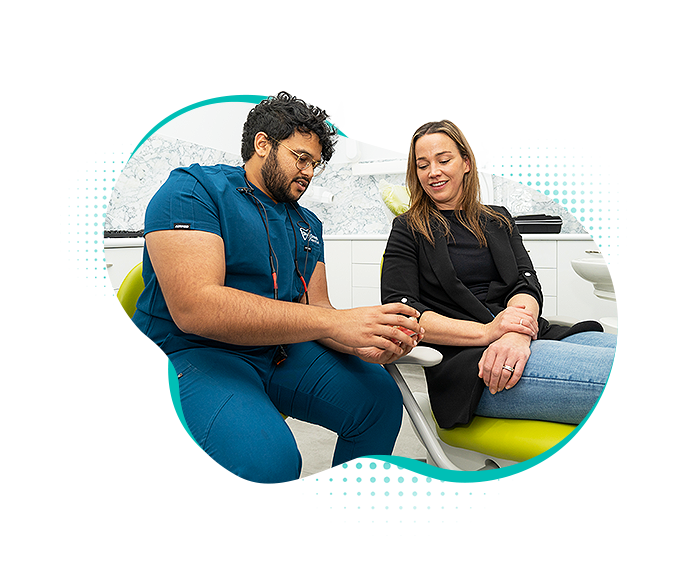Sleep Dentistry
At Bull Creek Dental, we are proud to offer complete care for all your dental health.
or
Sleep Dentistry
At Bull Creek Dental, we are proud to offer complete care for all your dental health.
or
- Home
- Sleep Dentistry
- Home
- Sleep Dentistry


Sleep Dentistry
Many people feel nervous before and during the dental procedure. Dental procedures can cause fear, anxiety, scare, phobia, etc. This is the reason why the patients keep delaying and ignoring essential dental treatment. But you need not worry anymore. Sleep dentistry can ease stress.
This is a new approach that enables you to undergo dental treatment without any stress and anxiety. The process uses specialized medication to relax you during the procedure. Sleep dentistry or sedation dentistry uses different levels of medication, as per the needs of the patient.
In the minimal sedation, the medicine is used to create relaxation but the patient remains awake. In moderate sedation, the patient relaxes in a conscious mode but might forget most of the procedure. Deep sedation leaves the patient unconscious.
So, if you are afraid of dentists and dental procedures, you can consider this option to ease your stress. Pain is another biggest concern of people while they are planning to undergo major dental procedures. Sleep dentistry can help you significantly.
Know more about sleep dentistry at Bull Creek Dentistry.
Sleep Dentistry:
Our Services Under
At Bull Creek Dental Surgery, we are a health fund participant of the major health funds, HBF and HCF. Please give us a call or book online to find out more about the benefits available for our preferred health funds.
Frequently Asked Questions
Anxiety is a normal human emotion characterized by feelings of worry, fear, or unease about future events or uncertain situations. However, when anxiety becomes excessive, overwhelming, and interferes with daily life, it may be considered an anxiety disorder.
Symptoms of anxiety can vary but may include excessive worrying, restlessness, irritability, muscle tension, difficulty concentrating, racing thoughts, sleep disturbances, and physical symptoms like rapid heartbeat and sweating.
The treatment for anxiety may include psychotherapy (talk therapy), cognitive-behavioral therapy (CBT), medication (such as antidepressants or anti-anxiety drugs), lifestyle changes, relaxation techniques, and stress management strategies.
Sedation is the use of medications to induce a state of relaxation and reduce anxiety or discomfort during medical or dental procedures. It can help patients feel calm and at ease during treatments.
In dentistry, different levels of sedation are used, ranging from minimal sedation (awake but relaxed) to general anesthesia (unconscious). Common forms of dental sedation include nitrous oxide (laughing gas), oral sedatives, and intravenous (IV) sedation.
Nitrous oxide is a safe and effective sedative gas that is inhaled through a mask. It induces a feeling of relaxation and euphoria, helping patients feel less anxious during dental procedures. The effects wear off quickly, and patients can usually resume normal activities after the treatment.
Oral sedatives are medications prescribed by dentists to be taken before a dental procedure to reduce anxiety. They come in the form of pills or liquids and can help patients feel calm and drowsy during the treatment.
When administered by a trained and experienced dental professional, dental sedation is generally safe. Dentists carefully assess a patient's medical history and individual needs to determine the appropriate level of sedation and monitor the patient during the procedure.
Not all patients are suitable candidates for dental sedation. Individuals with certain medical conditions or drug allergies may not be eligible for specific sedation methods. Dentists will evaluate each patient's health and dental history to determine the best approach.
No, dental sedation and general anesthesia are different. Sedation induces a relaxed and calm state, while general anesthesia renders a patient unconscious and unaware during the procedure. General anesthesia is typically reserved for more complex dental surgeries or cases where deep sedation is necessary.
Take the first steps toward your perfect smile today!
Schedule An
Appointment Today
- |
Feeling Pain?
Call Us

Take the first steps toward your perfect smile today!
Schedule An Appointment Today
Feeling Pain? Call Us
